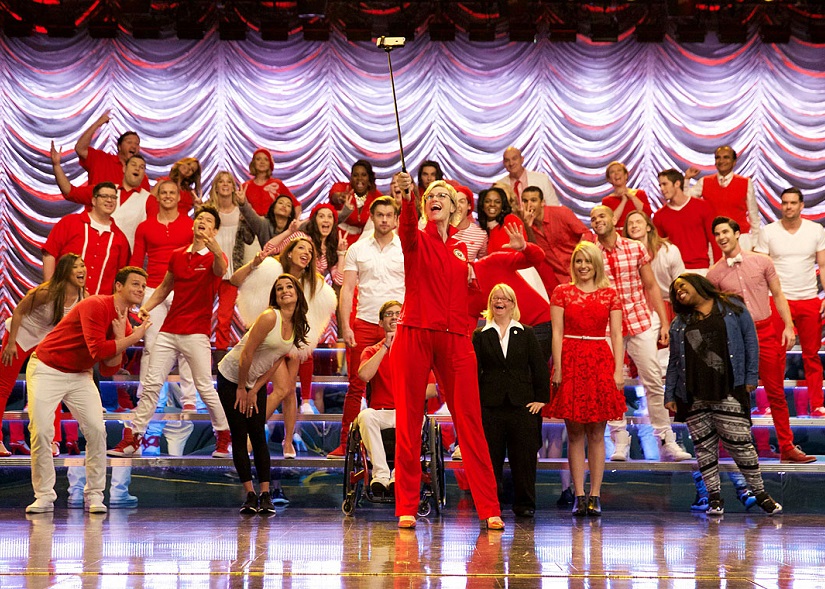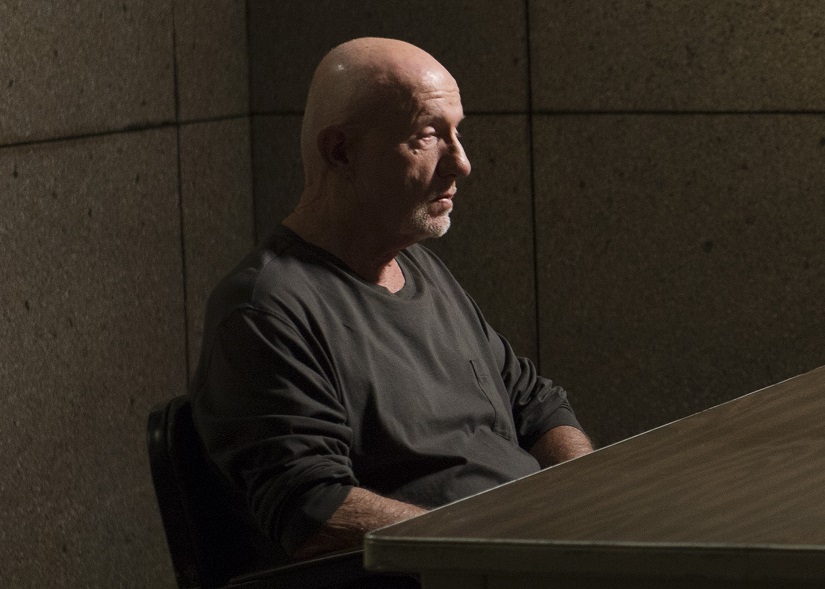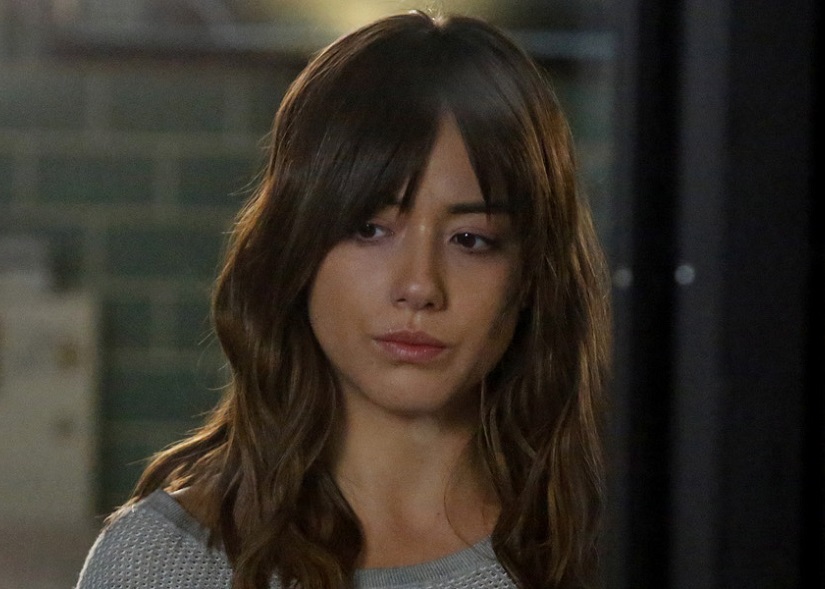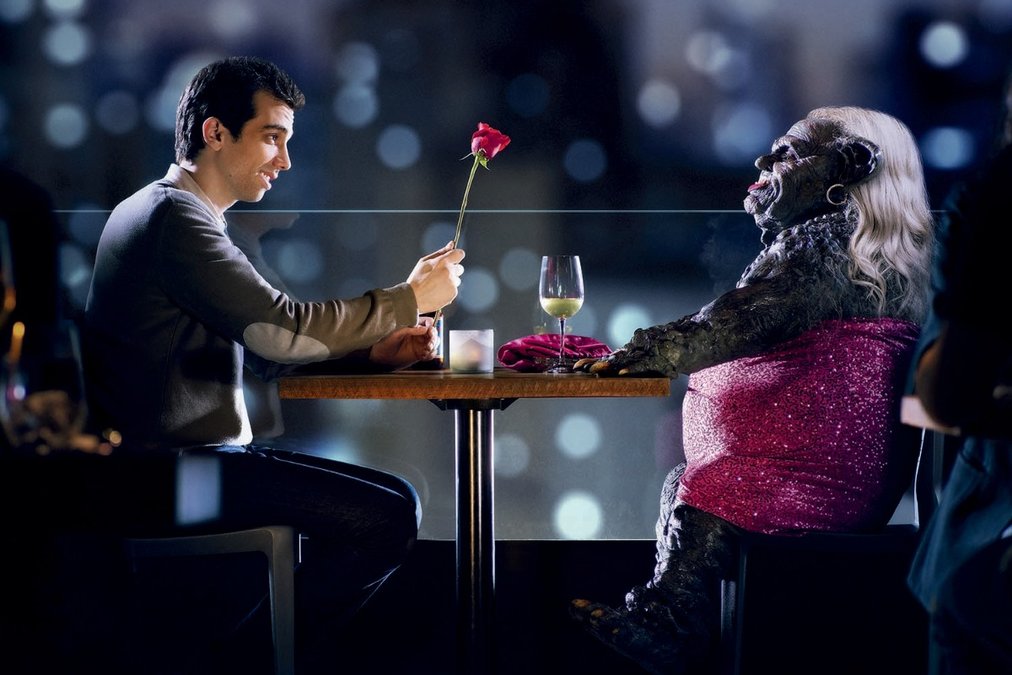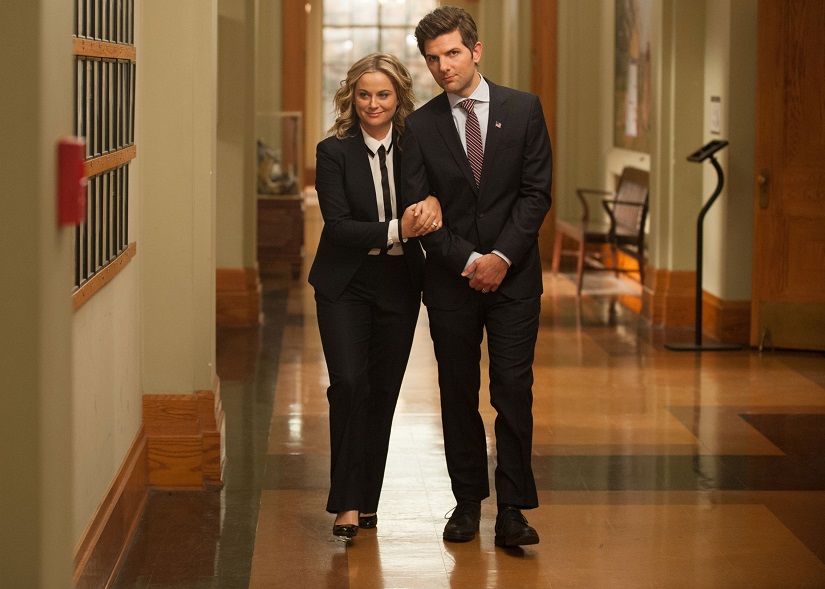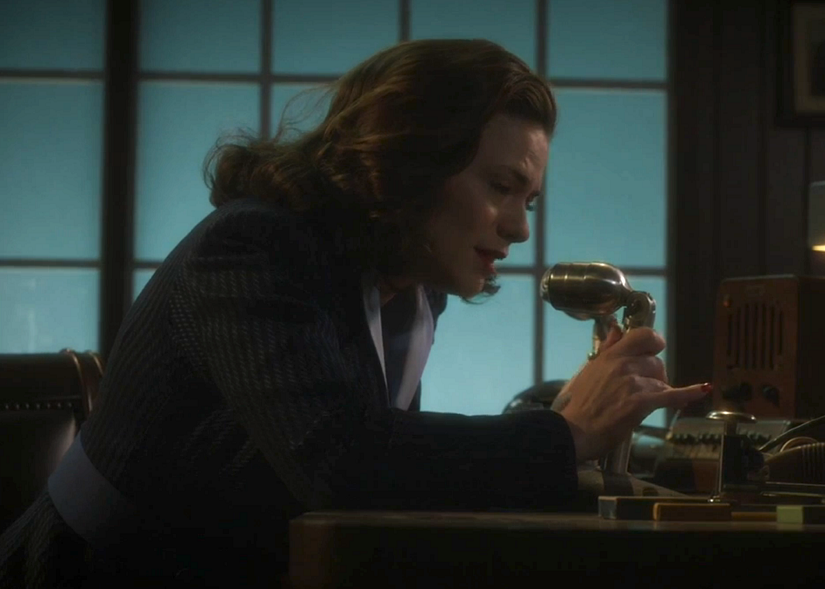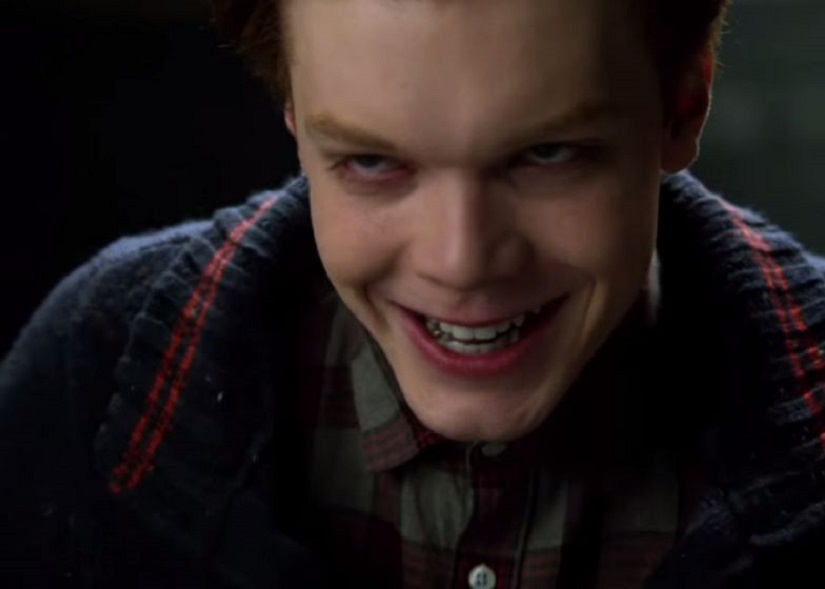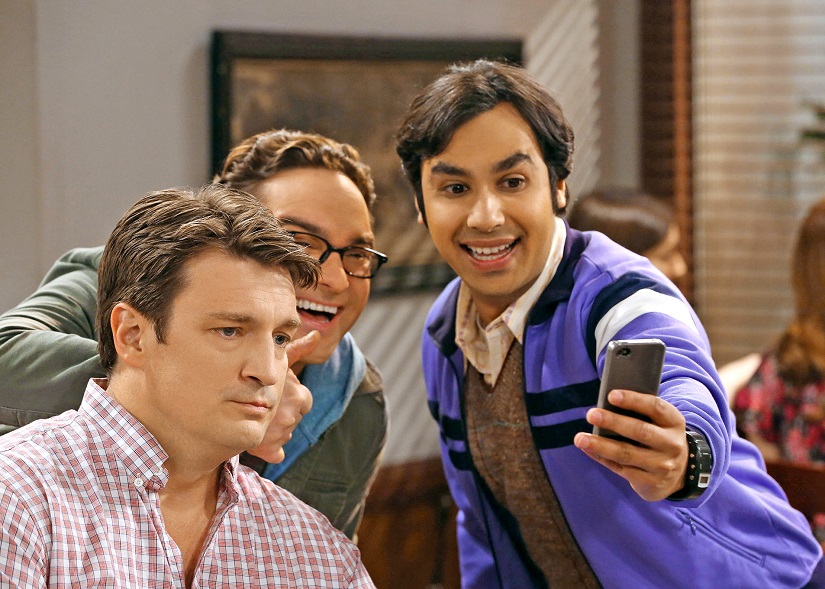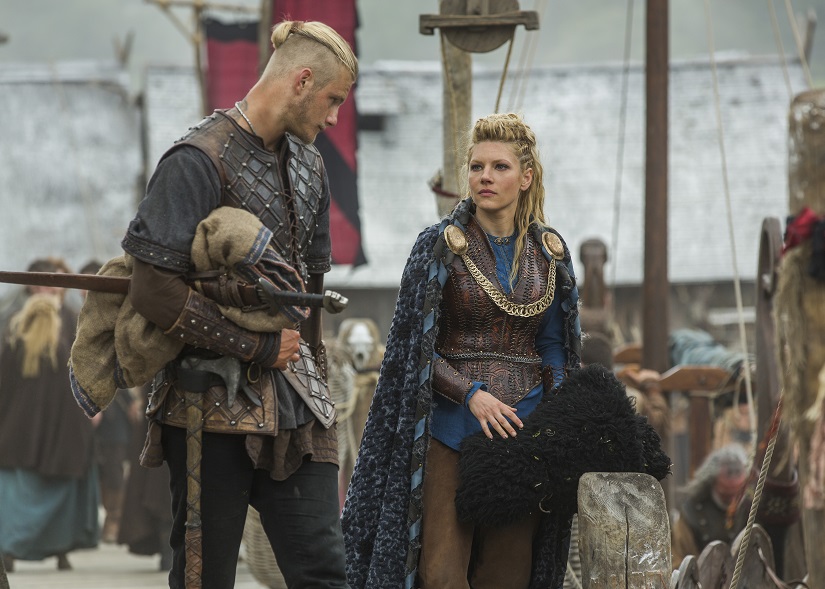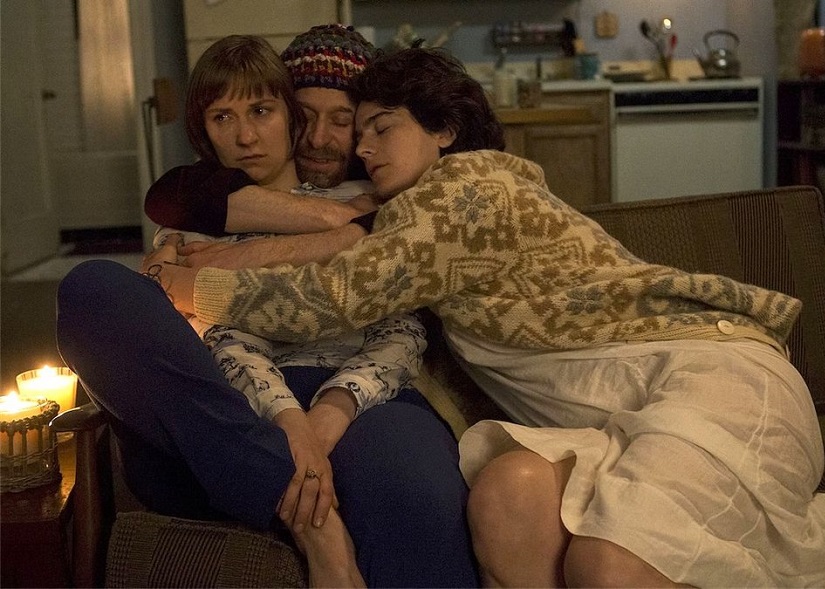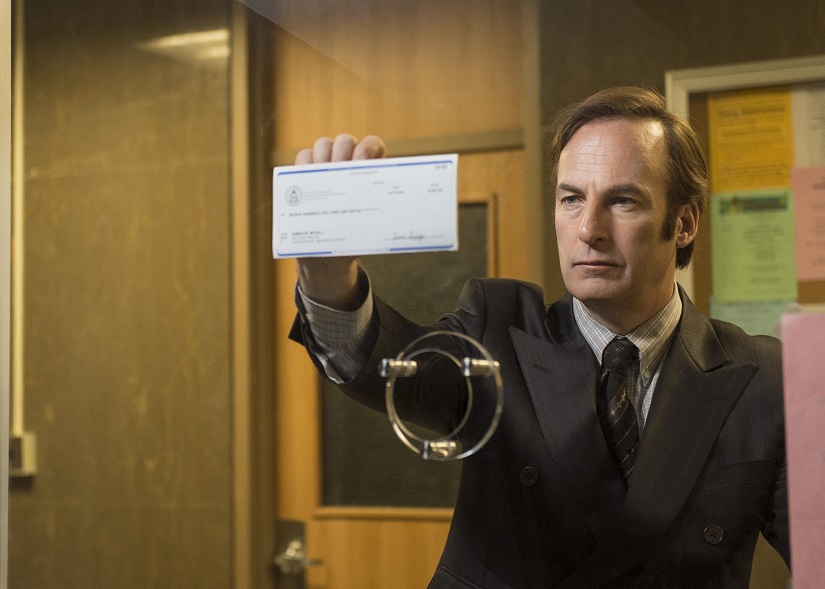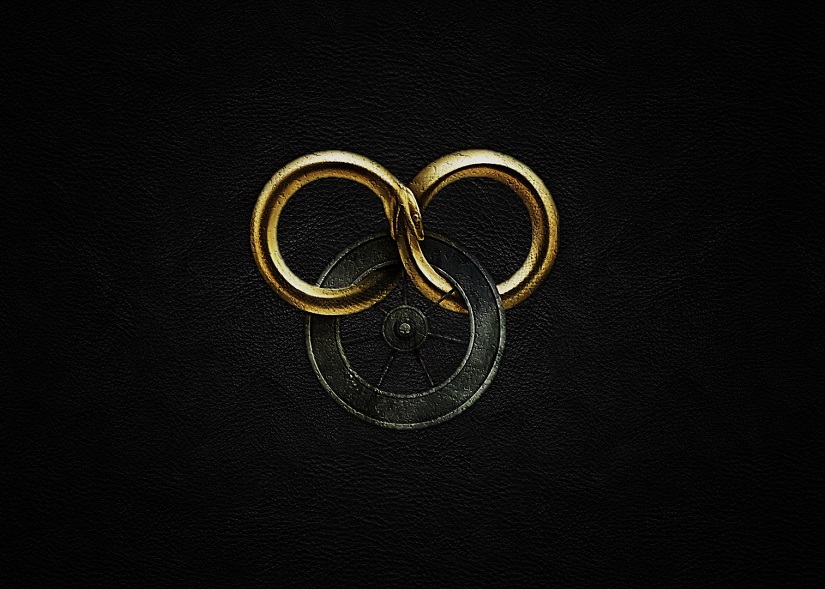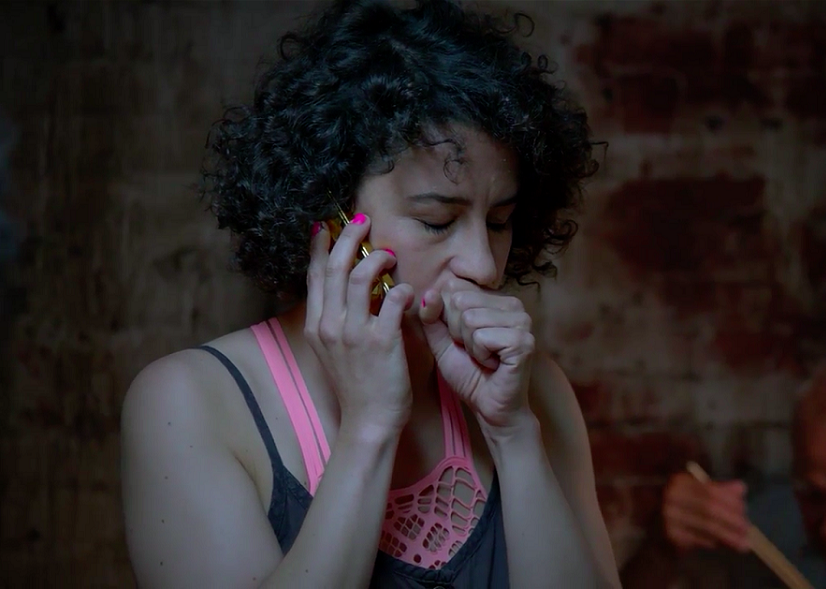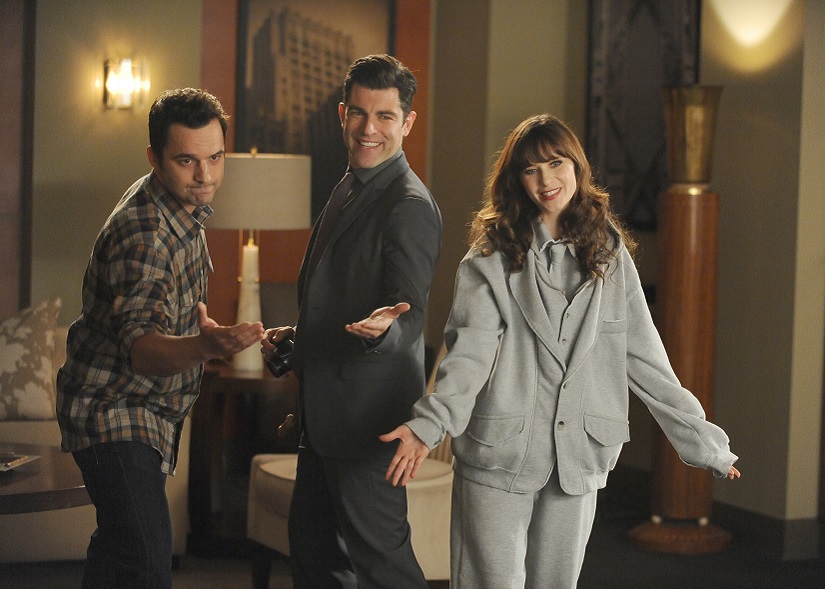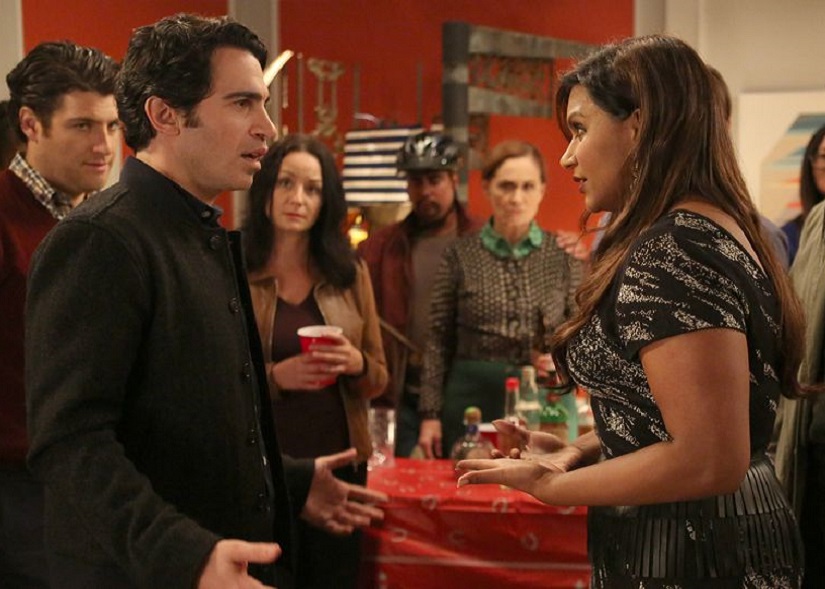[This Week In TV] Glee, Community, iZombie
This Week in TV is a weekly feature reviewing the best, worst and most interesting episodes of television from the past seven days. The plan is to cover a wide variety of shows, but not always the same ones each week, so let us know in the comments which ones you’d particularly like to read about. This week sees Glee give its farewell performance, Community make another miraculous resurrection, and iZombie premiere on the CW.
This Week In TV: Better Call Saul, The 100, Bates Motel
This Week in TV is a weekly feature reviewing the best, worst and most interesting episodes of television from the past seven days. The plan is to cover a wide variety of shows, but not always the same ones each week, so let us know in the comments which ones you’d particularly like to read about. This week sees Better Call Saul reveal the tragic history of one of its most beloved characters, the second season of The 100 come to a stunningly bleak conclusion, and Norman Bates being promoted to manager of the Bates Motel.
[This Week In TV] Unbreakable Kimmy Schmidt; Agents Of SHIELD and More
This Week in TV is a weekly feature reviewing the best, worst and most interesting episodes of television from the past seven days. The plan is to cover a wide variety of shows, but not always the same ones each week, so let us know in the comments which ones you’d particularly like to read about. This week sees the debut of Tina Fey's new comedy, Unbreakable Kimmy Schmidt; the return of Marvel's Agents Of S.H.I.E.L.D.; and Will Forte roaming a deserted Los Angeles as The Last Man Alive.
Unbreakable Kimmy Schmidt - First season
Having been abandoned by NBC, the complete first season of Unbreakable Kimmy Schmidt premiered on Netflix yesterday, hence this review taking a wider look than just the first episode. Kimmy Schmidt is the story of a young woman rescued from an apocalypse cult which saw her locked along with three friends in an underground bunker for fifteen years, before being rescued and let loose to try and make a life for herself in modern day New York. Those who count themselves among 30 Rock's devotees will immediately find themselves in familiar territory here, from Jeff Richardson's strikingly similar score to a humour style leaning heavily on cutaway visual gags and rapidfire wordplay.
In Ellie Kemper, the show finds a perfect lead for a character who, in lesser hands, could come off as irritatingly dumb and over-affected in her cutesiness. Instead, Kemper finds a perfect middle ground that layers the manic chirpiness and enthusiasm with an underlying sense of damage and emotional depth, making Kimmy a fully rounded character behind the quirks. Titus Burgess puts similar pain behind his character, also named Titus, turning a potentially tiresome gay stereotype into a delightfully delicate and ridiculous foil for his new roommate. Jane Krakowski once again plays Jenna Marone, albeit under the new name of Jacqueline Vorhees and with an admirably ludicrous backstory and a grouchy daughter, Xanthippe, who inspires some memorably spiky comebacks from Kimmy.
Despite its immediately winning cast, Kimmy Schmidt struggles to achieve more than a handful of isolated laughs per episode because it never really grounds its comedy in anything real or specific in the way 30 Rock did with television production. The eponymous Kimmy should work as an oddball in a tough, modern city, but instead she's just one among many exaggerated cartoons. Attempts at social commentary feel clumsy at best and like cynical box-ticking at worst: ideas about victimhood in the pilot (and a more subversive spin on the same topic in episode 5) would provide potent and topical subtext, except the writers insist on punching you in the face with it: "Thank you, victims!" an assistant shouts as he bundles the four women out the back door of a television studio.
Similarly, a gag about Kimmy being subjected to a crass catcall from a builder makes its point perfectly well with a neat and funny punchline ("I wish I were your yellow hat!"), only to have the wit and pleasure sucked out of it by the builder suffering a crisis of conscience and reaching the lazy and reductive conclusion that he only harrasses women because he's secretly gay. It's also a little hypocritical for a show puporting to oppose inequalities to base one episode around women coming off worse in divorce settlements, which, no matter how many mitigating circumstances are shoehorned in, still comes off as unironically placing those who benefit from an unequal system in the role of victims of that same system.
As you'd expect from a Tina Fey comedy, Kimmy Schmidt does pull off some terrific gags from time to time - Titus discovering he gets more respect dressed as a werewolf lands an absolutely hysterical conclusion - and is not short of imminently quotable one-liners (#hashbrown), but the humour leans too heavily either on ground already well trodden by 30 Rock - the redneck humour wasn't funny then, still isn't now - or on Kimmy's fish-out-of-water ignorance, which even when delivered by an actress as effortlessly charming as Kemper, can feel exhausted after a while. The show takes a few episodes to get going, peaks in the middle before dropping severely in quality for its final three. As is the Netflix way, it's light and dumb enough to binge through in a few sittings, but needs to find some substance and specificity in its second season if it's to match the greatness of its illustrious forebear.
Agents Of S.H.I.E.L.D. - "Aftershocks"
Despite being critically panned for much of its first season, Agents Of SHIELD - and no, I'm not going to keep typing those bloody full stops - was on fantastic form before going into a post-Christmas break, during which it was replaced by the very watchable Agent Carter. It was starting to put together some strong action sequences and a compelling central mystery linking it to a vital but hitherto unexplored area of the Marvel screen universe. True, its characters largely remained as generic and personality-deficient as ever, but Adrianne Palicki proved a strong and charismatic addition to an expanding cast and at least they were doing interesting things, even without being particularly interesting themselves.
'Aftershocks' suffers from coming off such a prolonged break, and the clue to its problems is in the title. Despite a pre-episode recap, the events of Skye and Raina's incursion and transformation in the subterranean Kree city feels too long ago for the relatively slow and pensive aftermath to be as compelling now as it would've been three months ago. Skye spends almost the entire episode locked in quarantine, having one-on-one conversations with her teammates through a glass wall, while Raina struggles to come to terms with having become what she sees as a monster. There's plenty of dramatic meat to chew on, but it's too late after the event and too downbeat to function as an inviting re-introduction to the series. The absence of a strong central character or single dominant personality is keenly felt because the show's strongest elements, its action and plotting, are mostly kept on the down-low whilst Coulson and his team mourn a fallen comerade and bounce the blame around.
Raina's story is more interesting than Skye's, in no small part because we can immediately see the effect that the Terrigenesis has wrought on her. Her body is covered with thorns and her facial features have mostly melted away, leaving a character previously defined by her beauty and control in a position where she's stripped of both those assets. Dichen Lachman makes a welcome reappearance, if anyone remembers her popping up momentarily in the pre-Christmas episodes, that is, setting the stage for the blind, teleporting Inhuman who rescues Raina from capture following a suicide attempt. Introducing the Inhumans through Agents Of SHIELD is a canny move which makes the series' events feel immediately essential to the Marvel screen universe in a way the first season failed to, but despite promising great things to come, 'Aftershocks' on its own terms was too busy reminding us of events past than making interesting moves in the here and now.
The Last Man On Earth - "Alive In Tucson"/"The Elephant In The Room"
'Alive In Tucson' is one of the boldest, most ambitious and bleakly funny episodes of television to air this season. It focuses entirely on one man, Will Forte's slobbish Frank Miller, as he attempts to stave off boredom and then depression as seemingly the only survivor of an unspecificed virus which tore through the human race at apparently brutal speed. Though it may come up later, the writers make no effort to explain why the streets aren't littered with corpses or whether animal and insect life was similarly afflicted: judging by the complete absence of insect swarms when Phil starts using a pool as a toilet, it seems probable.
In any case, it's clear enough that removing such obstacles allows the show to focus entirely on the character drama without getting unnecessarily unpleasant, which is a perfectly acceptable trade-off. The lack of details works in its favour, allowing the audience to fill in the gaps with their own explanations rather than having to ignore any logical gaps that might exist in an official one provided by the writers. Plus, Phil doesn't really seem the sort to bother too much with the 'why' or 'how', so it makes sense that he'd be more preoccupied with his own present interests rather than seeking out answers. The gradual degredation of his mental state gives the character real sympathy even when played strongly for laughs. He may be materialistic and slovenly, but also demonstrates admirable creativity in how he amuses himself - explosive car bowling! - and puts real effort put into seeking out any other trace of human connection he can, even if it initially involves conceding a point to the writers of Cast Away about the friendship appeal of volleyballs.
It's hard to imagine how the show could've sustained itself with a single character for an entire season, but it's nevertheless disappointing when another survivor, played by Kristen Schaal, shows up at the end of the very first episode. It's made worse by the fact Schaal's character, Carol, is the worst kind of stereotypical female nag and buzzkill. There's real potential in the idea of the last two humans alive having to team up despite hating each other - see Lister and Rimmer on Red Dwarf for further details - but the imbalance is far too severe between Phil's likeability, in spite of his many flaws, and Carol being yet another loathsome termagant with little to no redeeming qualities. Her attempts to bring him back within the parameters of civilised living may be beneficial in the long run, but her non-stop nagging (and marriage obsession) lands her right in Katherine Heigl territory and completely tanks the second episode. Hopefully the characters will be broken out of that Judd Apatow mould (slobbishly charming man worn down by a scolding woman) as soon as possible, because "The Elephant in the Room" almost immediately squanders the goodwill built up by the outstanding 'Alive In Tucson' for the series going forward.
[Review] Man Seeking Woman
There are a few shows on television that bring artistic originality to the table while being undoubtedly hilarious. There’s also a fine line when it comes to intelligent comedy and alternative comedy. In some cases, the line is blurred. Much like my Silicon Valley review, the new FXX show, Man Seeking Woman, has me utterly captivated by the somewhat campy, yet refined comedic rendition of literary boy-wonder Simon Rich’s novel, The Last Girlfriend On Earth: And Other Love Stories. This show is daring, absurd and relatable to anyone who has ever felt like love was out of their reach.
A little background about the novel is that Simon Rich is one of the world’s youngest and funniest writers in the literary community. Graduating from the prestigious Harvard University after becoming president of the iconic Harvard Lampoon, he landed a gig as the youngest writer for Saturday Night Live at just 24 years old. Within his first year he was nominated for an Emmy for his work on SNL. Later, he moved onto being a staff writer at Pixar. While he’s only 30 years old, he has published numerous humor novels and columns in the New Yorker similar to the style of acting played on the show. His book, The Last Girlfriend On Earth: And Other Love Stories, throws readers into a semi-fantasy world where impossible obstacles are put in front of him in order to get over a messy break-up and get back into the dating world.
[youtube id="GTTzk69hFQs"]
The show's key players, Jay Baruchel and Eric Andre, seemed like polar opposites when the show began based off Baruchel’s typecast of being a total granola, white dude and Andre’s chaotic, alternative comedy endeavour of The Eric Andre Show. Yet, when you see how Josh Greenberg (Baruchel) and Mike (Eric Andre) interact with each other, it comes as no surprise that they play off each other’s weaknesses. The show begins when Josh’s college girlfriend, Maggie, breaks up with him and in a desperate funk, Josh tries to be cope by attempting to get over his fear of meeting women, going on dates, talking to his mother and “finding himself.” With the help (or lack there of) of Mike and his sister Liz, Josh learns how to date in a world where love seems to fall into the category of being a necessity rather than a natural rite of passage in life for people in their mid-twenties.
[youtube id="2Hd3l291zo0"]
Problems that range from being set up on a blind date with an actual troll, finding out Maggie is dating Adolf Hitler (see video below), faking his own death to get out of a camping trip and becoming jealous of his short-lived girlfriend’s best friend, a tentacled Japanese penis monster, are all obstacles for Josh in the game of love. Man Seeking Woman adds depth to exploring love while bringing in nonsensical humor to the audience. With underlying themes such as finding the right girl, knowing when love is real and knowing when it’s not, the show puts authentic situations into play without leaving the viewers feeling heavy-hearted. If anything, viewers should feel connected to Josh; he’s the poster boy for “nice guys finish last” in a world full of alpha males who avoid love like it’s a prison sentence.
[youtube id="G-3OQC64nhU"]
The target audience is the millennial demographic, who seem to be completely consumed by superficial dating apps and drinking too much, which is addressed in the show as well. Yet, the show uncovers the compassionate side of Josh whenever he fails at trying to find, leave and sometimes, force these “love-y dove-y” feelings upon himself and the women in each episode. The dialogue is brief, to the point and easy to follow for audiences who are used to the antics that each actor portray in their previous work. Their real life situations of trying to find love in an unlovable world are backed by off-the-wall predicaments like having a priest perform an exorcism on your ex-girlfriend’s belongings that just won’t leave you alone or having to attend a destination wedding in actual hell. Better yet, your ex-girlfriend is at the same table as you. These are some of the weird comparisons and “what if” imaginative ideas everyone has thought about when given the short end of the stick of love. If you’re anything like Josh, there is a small glimmer of hope that you don’t have to go through it alone. You can catch the last couple of episodes on FXX at 10:30pm EST.
[This Week In TV] Parks & Recreation, Agent Carter, Victoria's Secret Swim Special
This Week in TV is a weekly feature reviewing the best, worst and most interesting episodes of television from the past seven days. The plan is to cover a wide variety of shows, but not always the same ones each week, so let us know in the comments which ones you’d particularly like to read about. This week sees the series finale of Parks & Recreation, Agent Carter reach the end of its eight-episode run, and Victoria's Secret draping semi-naked women across our televisions just because it can.
Parks & Recreation - "One Last Ride"
The outpouring of grief in certain corners of the internet over Parks & Rec's final farewell would seem disproportionate on the surface for a show which never did especially well in the ratings and whose output varied in quality over its final few seasons. It wouldn't be the first show to be lauded by a small but passionate internet fanbase - one need only look to Chuck or Community for shows whose very survival depended on it - but Parks seems to have struck a more personal and emotional chord with its fanbase than almost any other show to have gone before. The most passionate tributes to 30 Rock, for instance, came from women inspired by Tina Fey giving her sex a real voice in the television comedy landscape and, through her magnificent alter-ego, Liz Lemon, permission to be every bit as ridiculous as the men around her. Parks & Rec wasn't shy about its feminist leanings, but its audience seems to reach far beyond those narrow parameters: whether men or women, fans or critics, feminist or apolitical, even the Indiana tourist board, it seemed that no matter where you looked, love for the show was all around.
While I can hardly pretend to speak for such a wide variety of people, my personal feeling is that the intense passion so many felt for the show most likely grew out of one of its simplest, but most gently powerful characteristics: it was a show which, at its core, was kind. Leslie Knope may have overcome no shortage of cartoon villains during her time in Pawnee - Tammy II and Councilman Jamm being among the most memorable - but her greatest triumphs were rooted in empathy and understanding. Fiercely competitive and ambitious though Leslie was, her willingness to listen and make the right choices stood her apart at a time when the TV landscape was dominated by comedy born out of cynicism and drama portraying tortured anti-heroes navigating bleak ethical landscapes.
Parks & Rec was a beacon of light, embodied first and foremost by Leslie but enhanced by the affectionate and well-meaning doofuses she called her friends and colleagues, each representing their own corner of American life. In Ron f**kin' Swanson, she found her closest friend in a man seemingly her polar opposite: a gruff, anti-social conservative whose keenest interest in big government was trying to sabotage it at every opportunity, all while cultivating TV's greatest moustache. From Ann, April and Andy came the voices of youth trying to find their place in the world (or in Chris Pratt's place, the galaxy); Tom and Donna were livewire portrayals of people from underrepresented races making the American Dream their own; Ben was a positive voice for nerddom, Chris for the high-achievers. Pawnee was a place where everyone was welcome. Well, except Mark Brendanawicz.
As for the finale itself? Well, as has been the trend over the past few seasons, it got the sentiment right even if the pacing and humour were sometimes a little lacking. The structure, Six Feet Under inflected, meant the story moved in fits and starts and the eponymous 'last ride' never felt like much of a struggle or an achievement for any of the characters. However, as a farewell to this wonderful cast of characters, it did right by all of them, perhaps none moreso than in leaving Ron canoeing serenely across a vast lake, having found total contentment. April got one last piece of wonderful Leslie advice, Ann and Chris made a brief but charming return, and there was one last, magnificent dig at a public library. In short, it offered an hour-long encapsulation of everything which made Parks special to so many, and no-one could ask for much more than that.
Agent Carter - "Valediction"
Another feminist show to take its bow this week was Marvel's Agent Carter, which, like Parks, has enjoyed some critical acclaim even while never quite becoming as much of a ratings hit as expected. The show took a while to find its feet, leaning too heavily at first on some eye-rollingly unsubtle representations of post-war discrimination, and plotting which worked passably well for individual episodes but struggled to establish a compelling or coherent bigger picture.
What kept it on track throughout was the performance of Hayley Atwell, at times single-handedly dragging the show forward through sheer force of charisma. While Peggy's characterisation on the page was never really extended beyond a hyper-competent woman fighting for a place in a world of powerful but ignorant men, Atwell filled in the details with effortless grace, bringing humour and suggesting a sympathetic heart beating beneath her charaacter's closed exterior. While the show's one-note feminism offered more crowd-pleasing than nuance, Atwell's transformation of Peggy into someone more fully developed than your stereotypical 'strong woman' was instrumental in drawing the audience onto her side and making each of her triumphs truly gratifying.
A shame, then, that 'Valediction' took much of the finale of Peggy's own show out of her hands and repositioned it to revolve around - yes - a powerful but ignorant man. Howard Stark may be one of the most important supporting characters in Marvel's canon, but making him the centrepiece of Agent Carter's serialised plotline detracted from the series' central feminist message and at the final hurdle, diminished its core strength - Atwell's Carter. It didn't help that Stark is, like most of the men in the show, a rather one-dimension buffoon. Dominic Cooper played the role as written, but the performance was still a grating one, with everything from the syrupy accent to the smug grin making the character more than a little unbearable across a full episode.
Still, while nowhere near as exciting as the penultimate episode, 'Snafu', 'Valediction' was a solidly enjoyable hour despite its self-inflicted obstacles. It improved markedly once Peggy started to take charge of proceedings: while Dottie needed more time to fully register as a villain, her fight with Peggy was decent value and should the series return, she will be a very welcome part of it. Peggy talking Howard down from attacking New York also gave a satisfying pay-off to her mouring of Steve Rogers, with Atwell, of course, nailing every emotional beat. Agent Carter may still only be a good show when it has all the ingredients to be a sensational one, but in Atwell it has a genuine star whom it would be very sad not to see return for a second run.
Victoria's Secret Swim Special
It's a hard life being a television critic. Sometimes you just have to sit down, steel yourself, and watch a full hour of the world's hottest models prance about in miniscule bikinis on gorgeous tropical beaches for review, because, well, it's your damn job. No, no, don't feel the need to send letters of thanks. These are the sacrifices we make; extensive rewinding, pausing and all.
So, the Swim Special. In a gripping narrative, the Angels turn up in Puerto Rico to shoot photos for the Victoria Secret swimsuit catalogue, with the dramatic stakes terrifyingly high as each model competes to claim the much sought-after cover. Lily Aldridge, owner of a body so celestial you'd think planets would revolve around it, is up first, proving herself a master of understatement by describing the shoot as 'epic' and 'legendary'. Truly, hers is a task Heracles would wilt to face, having to overcome crippling vertigo by climbing a small ladder onto a moderately sized boulder. Brave Lily is for this applauded by the crew with the joy traditionally reserved for a returning war hero. Meanwhile, the eternally chipper Behati Prinsloo is busy derping about in town, pretending to take photographs before meeting up with her Puerto Rican chum, Joan Smalls, to try out some local dancing. Compelling stuff indeed, but not exactly showing the kind of dedication required to bag a prestigious *cough* cover. Having recovered from her traumatic experience on the boulder, Lily Aldridge heads off to do an underwater shoot with Alessandra Ambrosio. Alessandra has done these before, but Lily hasn't and, once again, is utterly terrified. However, in a stunning twist, bad weather forces them to head back to land, where Lily gets to roll around in the surf instead. Triumphant music emphasizes the scale of her success.
Next, we check in with Candice Swanepoel, who has dominated the swimsuit catalogue cover for the past few years. Photographer Russell James, barely able to hide his smugness at having a much better job than you, describes her shoot as 'illegal'. No-one's entirely sure what this means, but fortunately there are no arrests. However, just as everyone's settling in, villains Maroon 5 turn up and their devastating show of corporate rock mediocrity kills all known boners dead. The Angels recover from this disaster with meditation and yoga, achieving zen enlightenment courtesy of VS' line in overpriced exercise gear. Adriana Lima and Joan Smalls then muck about with a pony for a bit, before the girls head into town for a night of celebration with Colombian crooner, Juanes. Unlike Maroon 5, he actually has an audience, who dance the night away amid domino-playing natives. With everyone else presumably ferociously hung over, Jasmine Tookes turns up briefly as a distraction before promptly disappearing again. Having recovered from their night of drink, drugs and dominos, the final four - Prinsloo, Aldridge, Swanepoel and Ambrosio, decked out in Top Gun sunglasses - engage in a decisive volleyball competition. TO THE DEATH. Or maybe not. Anyway, there's disappointingly little match action and most of the drama is relayed through the camera focusing at length on the scoreboard, which may set a new standard for streamlined sports coverage.
Underdogs Behati and Lily beat the odds to emerge victorious, followed by much celebration and spooning. Or maybe I dreamt that last part. Anyway, Lily's victory speech to the other girls couldn't be any more patronising if she tried ("You're great sports and you look beautiful.") and she chest-bumps Behati, which almost made me go blind. Alessandra says she'll look back on all this one day as 'an incredible time in her life', which seems a bit pessimistic. Little does she know but there's to be no happy ending: Maroon 5 return and the Angels dance with contractually obligated enthusiasm to their bland warblings. Amusingly, no-one else bothered to show up. Adam Levine gets a kiss from his wife, Behati, and it's all very disheartening. Overall, a downbeat ending sours an otherwise nerve-janglingly dramatic television event that doesn't quite come together as whole, but hardly matters since most of its target audience will probably have watched it in periods of no more than four minutes at a time anyway. Also, I think Lily Aldridge owns my soul now.
[This Week In TV] Gotham, Big Bang Theory, Vikings, Girls
This Week in TV is a weekly feature reviewing the best, worst and most interesting episodes of television from the past seven days. The plan is to cover a wide variety of shows, but not always the same ones each week, so let us know in the comments which ones you’d particularly like to read about. This week sees the Clown Prince Of Crime (possibly) make his entrance in Gotham, a death in the family in The Big Bang Theory, Vikings set sail for England and Hannah returning home to find her life in ruins once again in Girls.
Gotham - 'The Blind Fortune Teller'. Gotham feels on the verge of going full circle into becoming a parody of itself. Afflicted from the beginning with a case of severe tonal discord, the show seems to have doubled down on the lunacy with every passing week while intermittently still trying to engage viewers with what it tries to pass off as serious drama. The cases of the week are often grizzly affairs, yet interspersed with moments of baffling ridiculousness such as Gordon deciding the best way to locate a missing person is to... release and follow their pet snake? True, plots set in circuses have always dabbled in the outlandish even in more serious-minded shows, but Gotham has so comprehensively failed to establish the kind of show it wants to be, bouncing between ploddingly uninventive procedural and overwrought and underdeveloped comic book series, that such inexplicable flourishes just feel like the latest of far too many dunderheaded narrative choices.
The characters, too, seem to be getting more exaggerated. Oswald Cobblepot may have started out as a mummy's boy, but was also a devious criminal mastermind. Now he's so in thrall to her that he'll willfully indulge her delusions even if it means undermining his hard-won standing in the underworld. Fish Mooney, never knowingly understated, is now delivering speeches while standing on top of a kneeling man. Catwoman and Ivy are reduced to temporary stylists for Barbara, who must surely rank as one of the most pointless characters in television history. As for the love-in between Gordon and Dr. Thompson, their reactions to everything are so loopily broad and out of nowhere (Dr. Thompson is suddenly really, really excited about solving a cryptic clue from a psychic, because why not?) that you have to wonder if the cast have finally realised what a complete mess their show is and decided to ham up every clunky exchange just to see what they can get away with.
It's appropriate, then, that this is the point the show chooses to introduce its Joker, or at least heavily hint that way without outright declaring it, a child called Jerome who is just as schizophrenic as the show he's been plonked into. To his credit, the young actor portraying him, Cameron Monaghan, is fantastic, overacting in just the right way - as opposed to the show's insufferable takes on Edward Nigma and Harvey Dent, for instance - and snapping between Nicholson and Ledger with palpably unhinged ferocity. I don't particularly like the idea of the character being given one conclusive origin story (especially one so mundane, with yet more mother issues) but Monaghan plays his cards with stupendous relish, immediately becoming the most interesting player in the show's overblown roster. Hopefully there'll be more of him to come, because god knows it's becoming increasingly difficult to pick out anything else to look forward to in a show gradually sinking under its own weight.
The Big Bang Theory - "The Comic Book Store Regeneration". When it's on form, I'm actually a fan of Big Bang. Its characters have been intelligently developed over the years and the writers have steadily pushed out the uglier elements from the show's early days. True, it still has the bad habit of laughing at its characters rather than with them, but there's a lot more sincere affection for them than there used to be and the addition of Amy and Bernadette introduced a more balanced female perspective that offered new sources of comedy whilst forcing Penny to develop into a more distinct character than 'hot blonde across the hall'. Prior to that, the only alternate female voice - literally - was Howard's mother, a shrill and insufferable Jewish stereotype whose off-screen presence was used almost exclusively to make uncomfortable jokes about her weight and hygiene. Despite the faultless commitment of actress Carol Ann Susi, the character was never allowed to develop beyond those problematic roots.
What a shame that was, because it is difficult not to reflect on how much more Susi deserved out of her swansong role following a long and successful career in television and on stage. Her passing in November of last year meant Big Bang was to finally lose the difficult Mrs Wolowitz under the worst possible circumstances and without the chance to grow the character into someone more deserving of the talent behind her voice. In-keeping with a season which has struggled to reach anything approaching the highs of last year, 'The Comic Book Store Regeneration' was for the most part a bewilderingly flat half-hour that held back its major development - Mrs Wolowitz' death - until the final minutes, even though the material leading up to it felt like the most tedious kind of padding (Nathan Fillion's utterly pointless cameo) and retreading barren ground (Howard's feud with Stewart). While the announcement of the death was delivered in a strangely graceless manner - Howard wandering around aimlessly for a moment before declaring "My mom died" out of nowhere - the final scene at least provided a sincere tribute to the character and Suzi by proxy, with Sheldon's sweet consolation to his grieving friend an effective nod to how the character has grown. Hopefully next week's episode, 'The Intimacy Acceleration', will continue to explore Mrs Wolowitz and Carol Ann Suzi's legacy on the show, because while sweet enough in its limited way, leaving the tribute until the final five minutes felt utterly inadequate as recognition for one of the show's most enduring performers, for better (the actress) or worse (the character).
Vikings - "Mercenary". I haven't seen a lot of Vikings, but the show has slowly grown into a bonefide ratings and critical hit over its two preceding seasons. At the end of last season, protagonist Ragnar became king by outmanoeuvering and killing the deceitful Horik. Ragnar, a former farmer, is at once a natural leader and an outsider within his own people: a man of foresight and peace, whose first interest is finding somewhere to settle down and make a home even while enjoying his obvious talent for leadership and combat. It's not especially unusual for a historical drama to show a character caught between his civilised intellect and more primal urges encouraged by the society around him, but Vikings has done a terrific job establishing a world echoing its hero's conflict: on the verge of civilisation, yet not quite ready to abandon the rule of the sword.
That dichotomy was at the core of the drama in 'Mercenary', Vikings' third season premiere. Having negotiated a settlement with King Ecbert Wessex (read: England) that would seemingly guarantee peaceful co-existence between their two peoples, Ragnar discovers Ecbert wishes to add an addendum to their deal, using the Vikings' combat prowess to defeat his rivals and secure his dominion of the kingdom. Ragnar and his men reluctantly agree, leading to a climactic battle in which they storm one of the two armies which have flanked their longboats on either side of a bay. It's a well-staged sequence, if a little lacking in momentum due to the ease with which the Vikings repel the onslaught of arrows sent their way before ploughing fearlessly into the opposing army, which offers little serious resistance. It helps that the scene comes at the end of an episode a little too dialogue-heavy for its own good, laying out the key dramatic notes for the season ahead (as all premieres must) but falling back too often on telling rather than showing. Still, it's solid enough stuff and Floki's total inability to handle how kind and loving his wife is was a fantastically funny break from the seriousness elsewhere. It may have felt a little leaden-footed on its own, but the groundwork laid in Mercenary was promising enough to offer encouraging signs for the state of the season ahead.
Girls - "Sit In". Hannah Horvath's continual dipping in and out of existential despair is a well Girls has gone to time and time again, yet one that never seems to run dry of fantastic material. Happy Hannah is mostly fun when we can see her setting up her own inevitable downfall, but Lena Dunham seems to take perverse delight in making every one of those falls back down to earth even more shameful and rooted in blind self-absorbtion than the last. When Marnie - Marnie! - is able to see the situation clearly enough to offer sensible advice, it's probably best to admit you've probably made a huge mistake. Having abandoned her writing course in Iowa after alienating every single one of her (admittedly unpleasant) fellow students, Hannah returns home to find boyfriend Adam shacked up in her flat with new girlfriend Mimi-Rose Howard, or as she is delightfully described, "a girl's name and a boy's name with a flower stuck in the middle". Her old friends don't seem all that delighted to see her either, having felt that she'd abandoned them just as they were on the cusp of rekindling their lives and friendship. As if it couldn't get any worse, Mimi-Rose seems to be exactly the kind of honestly reflective, if undeniably pretentious, creative spirit Hannah wishes she could be.
'Sit In' takes place entirely within Hannah's flat, with almost the entire main cast of characters turning up in sequence. Jessa and Shosh go first, with Jessa taking no time at all to insult Adam for making Marnie his first choice call and reminding everyone why a well-delivered 'twat' can be one of the funniest single words in the English language (see also: Red Dwarf). It's a lovely example of everything Girls does so well at its best, at once mercilessly humiliating Hannah for laughs - oh, that bucket - while offering just enough sympathy for the insecurities and doubts of this most unintentionally self-destructive of characters to not feel vindictive. The other characters were there to either remind Hannah of how she'd let them down or offer amusingly overbearing amounts of sympathy for the breakdown of her relationship with Adam (you'd think the series had relocated to England given the amount of tea on offer, itself subject to a great piece of Horvath incredulity), with inspired one-liners coming thick and fast ("This isn't one of your more convincing fake showers!") and some fabulous visual gags, such as the uncomfortably extended hug-turned-weirdly-sexual-something in the screencap above. Still, if all else fails, at least Hannah can take comfort from knowing she's now got Marnie as a soulmate. Right...?
[This Week In TV] Better Call Saul, Law & Order SVU, Constantine, Wheel Of Time
This Week in TV is a new weekly feature reviewing the best, worst and most interesting episodes of television from the past seven days. The plan is to cover a wide variety of shows, but not always the same ones each week, so let us know in the comments which ones you’d particularly like to read about. This week takes in the two episodes marking Better Call Saul's series debut, Law & Order SVU's take on the Gamergate controversy, Constantine's season finale and a Wheel Of Time pilot made and released under inauspicious circumstances and starring Billy Zane, as though things weren't bad enough already.
[This Week In TV] Jane The Virgin, Broad City, New Girl, The Mindy Project
This Week in TV is a new weekly feature reviewing the best, worst and most interesting episodes of television from the past seven days. The plan is to cover a wide variety of shows, but not always the same ones each week, so let us know in the comments which ones you’d particularly like to read about. This week takes a look at the ladies in television, starting with a big reveal on Jane The Virgin, a strap-on standoff in Broad City, Jess trying to save a disastrous business pitch in New Girl and big moves in The Mindy Project.
Jane The Virgin - "Chapter Twelve". Jane The Virgin has been this season's critical darling since its debut last October, another triumph for the CW in its expanding library of strong genre programming. Jane's near perfectly balanced blend of melodrama, comedy and pathos came out of the gate fully formed and making an instant star of lead actress Gina Rodriguez, whose performances have infused the sharp writing with soul and sweetness. Twelve episodes in and there's no signs of slowing down: Rodriguez's Jane remains far and away the most huggable person on television, while each episode somehow manages to pack in moments of sincere, heartfelt sweetness alongside a cavalcade of increasingly loopy plot developments. The news last week that Jane was to become a writer for a telenovela threatened to be a little too cute for its own good, but worked perfectly in the context of this episode: she's delighted to be offered the chance to write an episode of her own, but less so when it is revealed she was only chosen because no-one else was willing to write a death scene for diva-ish star Rogelio, who is also Jane's father.
Jane's struggles to write Rogelio's big death scene at the end of her episode meant a fun little jaunt through the series' main themes. Having her take inspiration from a moving act of forgiveness from her grandmother was a perfect resolution for a show which has always put family and empathy front and centre, but the realisation that making the scene sing meant embracing the spirit of the telenovela was no less important. That spirit is what has given Jane its identity and the acknowledgment felt like the writers giving a nod to the fact they know exactly what their show's strengths are and how to play to them. That decision also informed the big reveal of Sin Rostro's identity, which played out in the most deliciously ludicrous manner as Rose drowned Emilio in cement - a pretty nasty way to go, all things considered, but finding just the right application of camp to stay on the right side of nastiness. The same was true of the fantastic pre-commercial scene of Milos seemingly slitting Petra's throat, a twist so shocking it went full circle into hilariousness, only to be revealed as a ruse to prove Magda was faking her disability.
While I still feel that Jane's hyper-condensed plotting can get a little exhausting over a full hour - two half-hours per week might be a better fit - the show continues to demonstrate such a masterful command of tone and momentum, not to mention a cast impossibly adept at making the comedy and drama work in tandem without cancelling each other out, that it is rarely anything less than a delight.
Broad City - "Knockoffs". Broad City boggles the mind in the best possible way, because even at a time when Archer and Rick & Morty exist, it still manages to go places you could never in a million years imagine a television show - a live-action one, no less - getting away with, especially when committing to its filthiness with such unrestrained delight. A comparison between the doe-eyed Jane The Virgin and a show as bawdy as this may seem a tad misguided on the surface considering the, erm, contrasting nature of the material, but there's a definite similarity in what allows the two shows to get away with what they do: in Jane's world, the craziness of the plotting; in Broad City, being able to dedicate an episode's main plotline to strap-on sex and one man's devotion to his personalised, ethically sourced green dildo.
Both shows, at their heart, are about family and friendship. Ilana and Abbi may be trashier, louder and more clumsily hopeless at everyday existence than Jane's open-hearted clan, but it's their unconditional support and affection for each other which keeps Broad City charming. Take, for instance, the strap-on plotline. A lesser show would likely make fun of Jeremy for his kinks or Abbi for her discomfort, but Broad City actively celebrates that weirdness, a spirit hysterically embodied by Ilana's dance of joy at discovering Abbi's situation. Make no mistake, it's very, very funny stuff, especially the For Your Eyes Only-riffing shot between Abbi's legs of the dildo dangling down over a delighted Jeremy, but there's a sincere sense of love at the idea of two people pushing the boundaries of their sexuality. That positivity is what fuels and humanises the comedy, appreciating the fact people can be into to some pretty unexpected stuff, but that's OK because it's what makes them who they are. The argument which broke Abbi and Jeremy up may have seen Jeremy act like a bit of a dick (I know, I know) over the specifics of his kink, but there's no sense of finger-pointing because it had already been established how important it was to him.
Meanwhile, Ilana and her mother's B-plot was pretty much just a series of ridiculous events - from collecting knock-off handbags in a sewer to being arrested en-route to a funeral - but punctuated with some great gags, from the pair's inherited similarities - vigorously shaking the nail polish in unison - to Bob Balaban's flustered turn as Ilana's dad. It's a terrific sequence that may not have much substance behind it, but worked as a hilarious insight into a day out with a particularly eccentric family.
New Girl - "Swuit". 'Swuit' isn't an especially funny episode of New Girl, but does demonstrate that after a disappointing third season in which overcomplicated plotting and tedious romantic complications weighed heavily on the show's lightness of touch, showrunner Elizabeth Meriweather has managed to get things back on track by returning to the simple comic formula of the first two seasons even if the jokes don't always land as precisely as they should. The show's greatest strength is in bouncing the loft's four utterly ridiculous personalities off each other under increasingly fraught circumstances. Pairing them up resulted in those personalities being shackled by having to work as part of a credible couple, particularly as the cast's comedic straight men have been provided almost exclusively by supporting characters such as the ever-incredulous Cece - huge shout-out here to Hannah Simone for what must be one of the funniest range of aghast expressions on television. It's the fact that the five main characters are so completely useless at working together, but try so hard anyway, that has been at the heart of many of New Girl's funniest episodes.
In that respect, 'Swuit' should've been onto a winner in focusing on Nick and Schmidt's attempts to come up with a business plan together under the pressure of an impending deadline pitch. For all that it's possible to analyse everything down to the most minute detail, the simple truth is that sometimes the jokes just don't quite hit even when they probably read fantastically well on paper. Nick and Schmidt shouting lovely things at Jess was never much more than mildly amusing, despite being an appropriate reaction on a character level for two furious people who nevertheless appreciate their friend's good intentions. The stammering pitch to Lori Greiner started well, but faded once the joke's single dimension wore thin. Winston and Coach investing in Cece's future up until discovering that future would be built on an arts degree was pretty funny - especially the course professor's resigned despair at his lot in life - but never quite found the spark to really take off. Regardless, that 'Swuit' proved one of the weaker episode in recent weeks is testament to how well New Girl has stabilised itself after last season's near-collapse.
The Mindy Project - "No More Mr. Noishe Guy". All cards on the table, I'd never watched The Mindy Project before this week, but with all of this article's shows having a somewhat feminine bias, thought I'd fully commit to the idea by taking a look at a show which seems to have grown in popularity and appreciation over the past few seasons. As a first time viewer, it's easy to pick out the elements which likely inspired that creative revival: Mindy Kaling is a perfectly likeable presence at the centre of the show, with a similar set of core characteristics - professional competence masking a scatterbrained personal life, devotion to food, lack of appreciation from her colleagues - to the late, great Liz Lemon. The overall tenor of the show is more low-key in its zaniness than 30 Rock or Parks & Recreation, but shares an appreciation for offhand silliness, whether delivered via a quick-one liner or a visual gag like a rat-infested brownstone.
The problem is that while low-key is fine, it here led to everything feeling strangely subdued. On the evidence of 'No More Mr. Noishe Guy', the more outlandish quips felt somewhat at odds with a mood that would seem better suited to more dry, subtle humour than Mindy being mistaken for Malala Yousafzai - which, admittedly, is supposedly based something Kaling experienced in real life - or getting all her medical treatments done at once. The quirks of Mindy the character also seem a little too indebted to Liz Lemon, but struggled to integrate as well in a character played relatively straight. The show broadly felt more geared towards its dramatic elements, which included an effectively played thoroughfare about having to adapt to life taking major turns out of the blue, than its comedic ones, which tended to come in fits and starts. Obviously as someone coming in at what is a major turning point of the season, with one character leaving the show and a pregnancy revelation throwing Mindy's life into further disarray, there are undoubtedly plenty of nuances which will have passed me by - hopefully the personalities of the non-Mindy characters feel more distinct with the benefit of long-term viewing, for instance. The show seems perfectly agreeable, but with Broad City, New Girl and Parks & Rec leading the line and 30 Rock still fresh in memory, a distinctly disposable entry in the resurgent field of female-led comedy.

